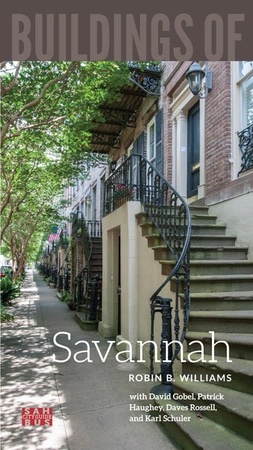
Mounting maintenance and repair costs and an increased demand for modern comforts including air-conditioning brought the wrecking ball to the venerable Hotel Desoto in 1966. That building had been the center of Savannah’s social life from 1890 until it was replaced by this mixed-use megastructure composed of two tall boxes atop a horizontal base that covers the entire tything. The hotel’s 264 guest rooms and suites are housed in a sixteen-story concrete-frame high-rise clad with colossal brick arches that are punctuated irregularly with precast concrete balconies. The similarly New Formalist seven-story block running parallel to Bull Street served as a bank and office park. A tall lobby connects the vertical boxes and also provides room for conference spaces, a restaurant, an outdoor terrace, and what was originally described as a lush indoor tropical garden lit by Plexiglas skylights. A massive precast concrete canopy that once protected the primary entrance on Liberty Street was replaced by the arched glass canopy in 2008. Underneath the entire structure, which is raised several feet above street level, is a three-level parking garage. A few ornamental red terra-cotta details from the old hotel were preserved and incorporated into the new structure. Atlanta architect Aeck, together with city officials and investors, promoted this project as an attempt to reinvigorate Savannah’s economy, and it remains a vital and popular hotel in the heart of the historic district.

